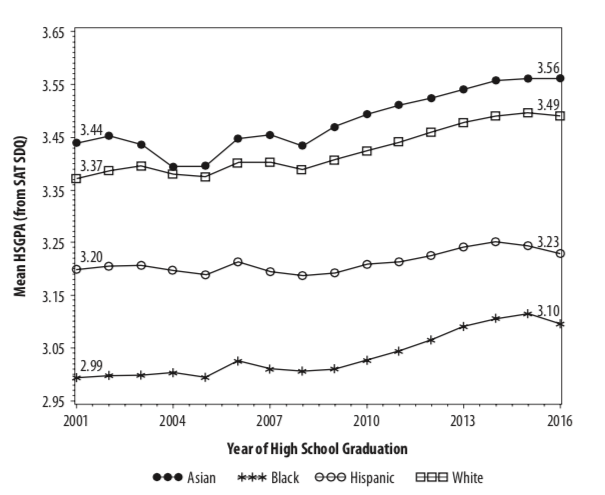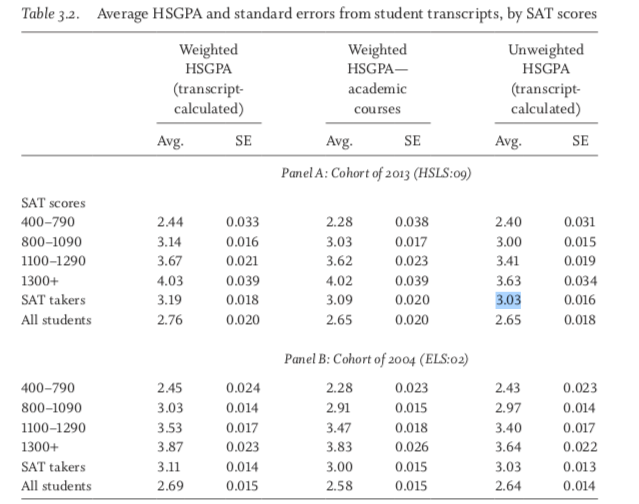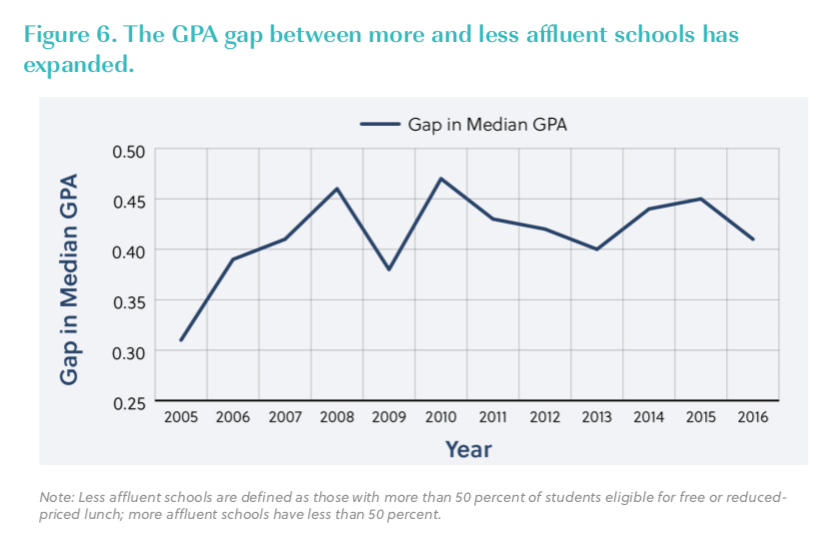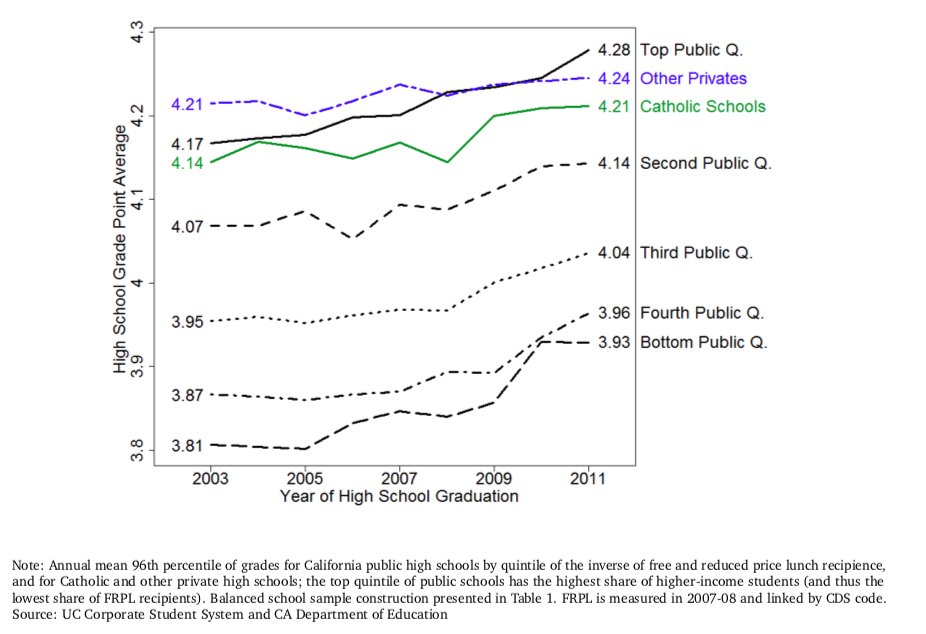1/So with more and more colleges dropping SAT/ACT requirements, I suspect we are going to hear more and more about the alleged scourge of grade inflation in affluent high schools. Is it real?
2/ The argument, promoted by the College Board, is that moving away from test scores and emphasizing GPA is "fraught with equity issues." Recently a pro-SAT op-ed in the NYTimes claimed (falsely) that half of high schoolers finish with an A- average https://twitter.com/matt_barnum/status/1258384933732651008">https://twitter.com/matt_barn...
3/This EdNext piece defending testing requirements describes a "small but growing" body of research showing grade inflation, particularly in affluent schools. Let& #39;s take a look at this "small but growing" research base. https://www.educationnext.org/standardized-tests-can-serve-neutral-yardstick-forum-should-state-universities-downplay-sat/">https://www.educationnext.org/standardi...
4/First we have a study published in a book by College Board-affiliated researchers. It claimed to show larger grade inflation for advantaged students; but actually was fairly comparable regardless of parental education and race (with the exception of Hispanic students). Look!
(5/Paul Tough first noted this discrepancy between what was claimed and what the study found in his book. https://www.paultough.com/books/years-that-matter-most/)">https://www.paultough.com/books/yea...
6/The same study found in a more rigorous analysis (based on actual student transcripts rather than self reports) that unweighted GPA *has not* changed a bit between 20004 and 2013, including among SAT takers. (Weighted GPA has ticked up.)
7/Onward! To the next study in this "growing body" of literature. Here is the key graph based on North Carolina data. This is legitimate evidence of differential grade inflation, but I do have a couple nits to pick... https://fordhaminstitute.org/national/research/grade-inflation-high-schools-2005-2016">https://fordhaminstitute.org/national/...
8/First, the study does not look at more or less affluent *students.* Students not schools seem like the key unit of analysis. Second, most of this difference came between just two years (05-06). I wish we had a longer panel of data to confirm this wasn& #39;t a one-year blip.
9/Alright let& #39;s look at our third and final study in this "growing body" of research. This study focuses on grades for top students in most California high schools between 2003 and 2011. http://zacharybleemer.com/wp-content/uploads/2020/03/UC-CHP-2020.1-Grade-Inflation.pdf">https://zacharybleemer.com/wp-conten...
10/Note the other studies didn& #39;t look only at top students. This study argues that looking at top student is more relevant for the college admissions debate because those are who will be applying to selective colleges.
11/So does this paper align with the claim that grade inflation is worse for affluent schools? No — the opposite. Higher poverty schools generally saw larger gains in grades. http://zacharybleemer.com/wp-content/uploads/2020/03/UC-CHP-2020.1-Grade-Inflation.pdf">https://zacharybleemer.com/wp-conten...
12/Also there is not evidence that this is "inflation." Gains may reflect real improvements in student achievement. The study finds evidence of that using, incidentally, the SAT.
13/13 To summarize—and whatever you think about the SAT/ACT debate—there is no "growing body" of research clearly showing differential grade inflation for affluent students. At best the research can be described as mixed. Reporters should be careful not to repeat this claim.
14/13 There are a lot of myths in the college admissions debate — some of which I used to believe before digging more into the research! — so perhaps this will be a recurring series. Also the prevailing debate is arguably about the wrong questions entirely https://www.chalkbeat.org/2020/5/18/21262897/coronavirus-sat-act-university-california-research-equity">https://www.chalkbeat.org/2020/5/18...

 Read on Twitter
Read on Twitter









